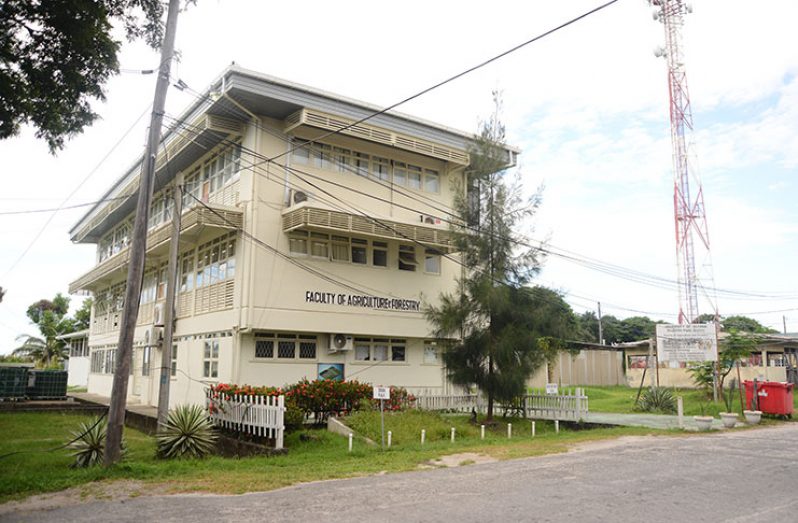– as bio-energy gasifier goes on eight-hour test
THE University of Guyana (UG) Faculty of Agriculture and Forestry will for the first time today test the capacity of its bio-energy gasifier to provide electricity to its agriculture building for eight hours.
If successful, the gasifier would provide up to eight hours of electricity to the three-storey building, thereby reducing the overall electricity cost for the university.
The bio-energy gasifier is the institution’s most recent development in the area of eco-friendly technology and is being hailed as a means to provide clean and renewable energy to the university, through the use of bio-mass materials.
Leading up to today, the faculty conducted a number of test runs of the machine’s capacity to provide electricity to a circuit by determining the ratio of bio-mass materials to energy that would be needed.
Dean of the Faculty of Agriculture and Forestry Dr Lawrence Lewis told the Guyana Chronicle that the test runs went for two hours or less, but today’s testing will prove whether the gasifier can meet the needs of a typical day of work at the faculty.
“When everything is running we want to switch it over to our electricity in the building and see how long it will run continuously thereafter,” he said.
Back in July 2019, the university launched the bio-energy gasifier which can use materials such as wood, grass pellets, coconut shells, rice-hull pellets and other bio-mass sources to produce electricity and bio-char, a charcoal-like substance used as a soil amendment.
The bio-energy gasifier has the ability to produce between 16-18 kilovolts, but the workload required for the building is some 13 kilovolts.

Dr Lewis said that the university hopes to soon have numerous bio-energy gasifiers about the campus, which will work to provide clean energy and save money.
He stated: “We hope later on we will have not one but a battery of them and then they can supply a number of areas in the university, [but] everything is funded.”
While the university had secured the gasifier for some two years prior, it was only in the months leading up to the launching that it received the funding to house the machine.
Funding for the gasifier project came partially from ExxonMobil to the tune of G$4M; from the Guyana Geology and Mines Commission (GGMC) at G$2M and Progress in Education for Sustainability and Development Opportunities for Aquaculture in the Caribbean (PESCADO) funds.
The project’s technical team led by Dr Lewis and Dean Owen Bovell, also received support from Verlyn Klass of the Faculty of Engineering and Technology and Philanthropy, Alumni and Civic Engagement (PACE).
Added to this, the university is currently collaborating with an American university to develop Varietal Trials for Sweet Potato.
“We will try to prepare, to an extent, the sweet potato accessions that we can sell to farmers that give them proper yields, disease resistance, pest resistance and the whole works. We’re working on that which is novel,” he said.
Through the project, the university will be able to open its bio-technology lab on the campus before the year ends, as financing is still needed to equip the lab.




.jpg)









